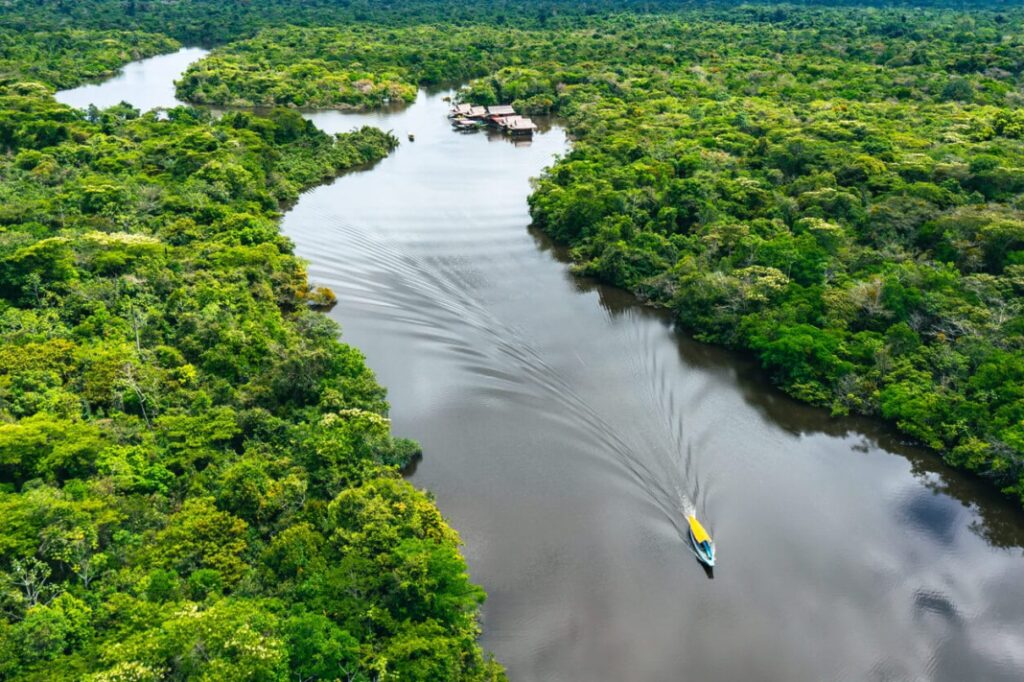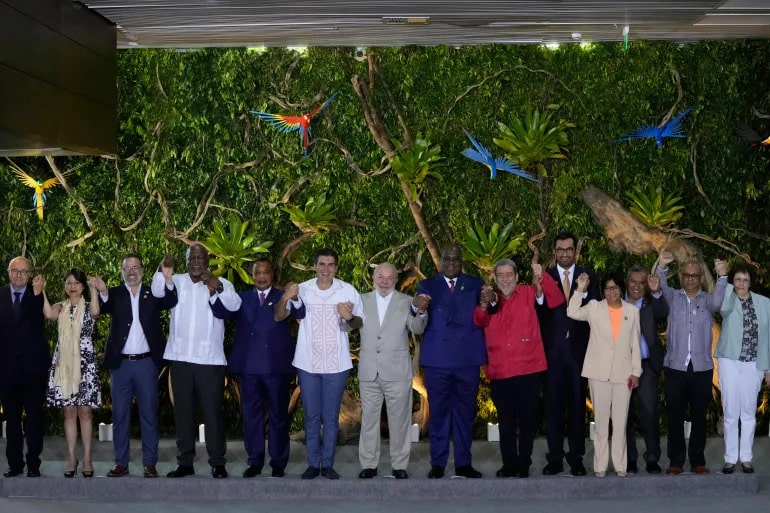A block of nations home to the world’s most extensive forests has called on wealthy countries to meet climate funding commitments on the final day of the Amazon Summit.
Wednesday’s pact, “United for Our Forests”, brought together leaders from 12 countries from the Amazon, the Congo Basin and southeast Asia, three regions.
The joint statement has called for developing a financing mechanism so the international community could pay for the critical services provided by forests.
“Our countries must wield more influence over the management of resources allocated to the conservation and sustainable use of biodiversity,” according to the official communique.
Yesterday, Wood Central reported that Columbia was pushing for developing a ‘Marshall Plan’ where developing countries’ debt is cancelled in exchange for action to protect the climate.

The new pact also urged developed nations to meet an existing commitment to provide USD 200 billion a year for biodiversity preservation,
It also expressed concern that previous commitments, which included delivering USD 100 billion a year in climate financing, had yet to be fulfilled.
A new bloc of rainforest nations ahead of COP28
Speaking to the world media, Brazilian President Luiz Inacio Lula da Silva said the Amazon Summit allowed the rainforest nations to unify before October’s COP28 meetings in Abu Dhabi.
The Summit is a crucial test for the Brazilian president, who served as president from 2003 to 2010.
Upon returning to office in January, he vowed, “Brazil is back” in the fight against climate change.
President Lula is pushing for Brazil to lead global efforts to end deforestation.
“We are going to COP28 with the aim of telling the rich world that if they want to effectively preserve the forest that exists, they need to pay money not only to take care of the canopy but to take care of the people who live under it,” President Lula said.
The impact of the EU’s new deforestation law on global supply chains
The statement also criticised what the bloc described as “trade restrictions disguised as environmental measures.”
Wood Central understands that this refers to the European Union’s law prohibiting firms from importing goods linked to deforestation.
The countries are under increased scrutiny following the introduction of the European Union Deforestation-free Regulation (EUDR).

Under the EUDR, European companies must prove that their products do not originate from deforested or forest-degraded lands, or they may face substantial penalties.
The new law bans the sale of coffee, cocoa, cattle, palm oil, soy and wood connected to deforestation – and has been criticised by developing countries most impacted by the new legislation.
!["This is a very strong result. We don't want to be complicit anymore in this global deforestation happening a little bit in Europe but first and foremost in other parts of the world," said the lead negotiator for the European Parliament, Christophe Hansen from the European People’s Party after the vote. [Copyright: © European Union 2023 - Source : EP]](https://woodcentral.com.au/wp-content/uploads/2023/04/Hansen-1024x576-1.jpg)
Leaders from Bolivia, Brazil, Colombia, the Democratic Republic of Congo, Ecuador, Guyana, Indonesia, Peru, the Republic of Congo, Suriname, Venezuela, Saint Vincent, and the Grenadines signed the communiqué.
Amazon leaders fell short of a zero deforestation commitment
Yesterday, the eight countries of the Amazon Cooperation Treaty Organization (ACTO) — which include Bolivia, Brazil, Colombia, Ecuador, Guyana, Peru, Suriname and Venezuela — adopted a “new and ambitious shared agenda” to save the sprawling South American rainforest with the announcement of the Belem Declaration.
The agreement fell short of committing to zero deforestation by 2030.
Instead, it will create an alliance to pursue individual deforestation goals by protecting Indigenous rights, with regional cooperation on water management, health and sustainable development.
As reported yesterday, the declaration will establish a scientific body similar in structure to the United Nations International Panel on Climate Change.
The body will produce sustainable development policies for the region while remaining independent of governments, monitoring the impact of climate change on the Amazon rainforest and ecosystem.
Reporting from the conference in Belem, Al Jazeera’s Lucia Newman said officials would work on a more detailed agreement in the coming months.
“It’s going to be interesting to see what happens when the foreign ministers of all the countries here meet in two months to hammer out the details of this Belem declaration,” she said.
The declaration also did not fix a deadline for ending illegal gold mining, although leaders agreed to cooperate.
Tensions had emerged before the summit, with some leaders rebuffing the position of Colombia’s left-wing President Gustavo Petro, who has pledged to halt new oil exploration in his country.







